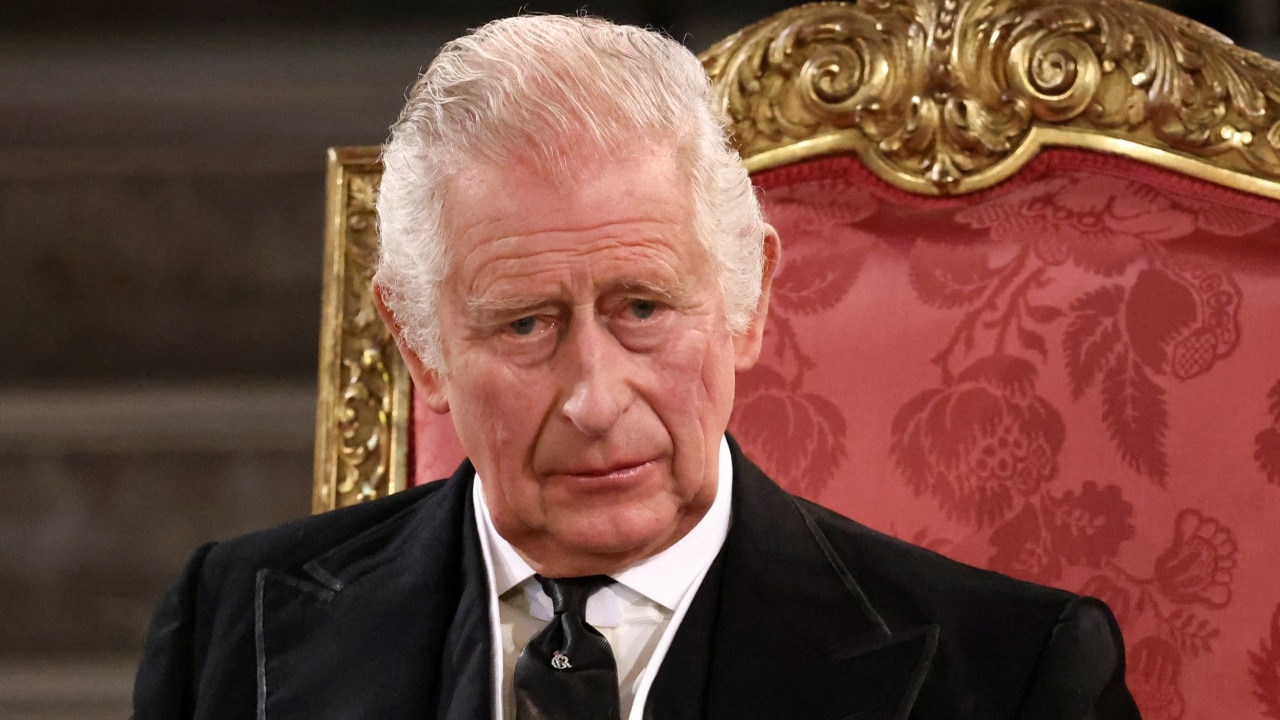Government's Economic Goals: King Charles III's G7 Ambition

Table of Contents
Sustainable Development as a Cornerstone of the Government's Economic Goals
Sustainable development is no longer a peripheral consideration but a central pillar of modern economic policy. The understanding that economic growth must be environmentally and socially responsible is gaining widespread traction. King Charles III has been a tireless champion of sustainable practices and environmental protection for decades, advocating for a transition to a circular economy and promoting responsible resource management. His influence on the G7 agenda is expected to significantly boost the adoption of the Sustainable Development Goals (SDGs).
- Examples of sustainable initiatives promoted by King Charles III: His initiatives include promoting organic farming, supporting sustainable tourism, and advocating for the protection of biodiversity. The Duchy of Cornwall, for example, has implemented numerous sustainable land management practices.
- Potential G7 policies influenced by sustainable development principles: We can expect to see increased focus on policies that incentivize green technologies, promote sustainable agriculture, and invest in renewable energy sources. This might include carbon pricing mechanisms, green subsidies, and stricter environmental regulations.
- Economic benefits of adopting sustainable practices: While some initial investments may be needed, the long-term economic benefits of sustainable development are undeniable. This includes job creation in green industries, improved public health, and increased resource efficiency, leading to enhanced economic productivity and competitiveness.
Tackling Climate Change: A Key Priority in the Government's Economic Goals
Climate change poses a significant threat to global economic stability. The escalating costs associated with extreme weather events, resource scarcity, and the need for adaptation measures necessitate urgent and ambitious action. King Charles III has been instrumental in raising awareness about the economic implications of climate change and promoting the adoption of green technologies. His advocacy is likely to push the G7 towards committing to more ambitious climate targets.
- Specific climate-related targets that could be set at the G7 summit: These could include accelerated emission reduction targets, increased investment in renewable energy, and enhanced support for climate adaptation measures in vulnerable nations.
- Government policies promoting investment in green technology: Incentives such as tax breaks, subsidies, and research funding for green technologies are likely to be central to the G7's climate action strategy.
- Economic opportunities associated with the transition to a green economy: The shift towards a green economy presents a vast array of economic opportunities, including the creation of new jobs in renewable energy, energy efficiency, and sustainable transportation sectors.
Fostering Economic Resilience: A Central Theme in the Government's Economic Goals
Building resilient economies capable of withstanding global shocks, such as pandemics, natural disasters, and economic crises, is paramount. King Charles III's emphasis on community resilience and supporting vulnerable populations underscores the importance of a holistic approach to economic security. The G7 is expected to explore strategies that strengthen economic resilience by diversifying economies and investing in human capital.
- Examples of economic shocks and their impact on national economies: The COVID-19 pandemic and the recent global energy crisis highlight the vulnerability of economies to unforeseen events and the need for robust contingency plans.
- Policies promoting economic diversification and resilience: Diversifying export markets, investing in infrastructure, and developing robust social safety nets are crucial for building resilient economies.
- Strategies for building resilient communities and supporting vulnerable populations: Strengthening social safety nets, investing in education and healthcare, and promoting community-based initiatives are key to building social and economic resilience.
The Role of Public-Private Partnerships in Achieving the Government's Economic Goals
Achieving ambitious economic goals requires collaboration between the government and the private sector. Public-private partnerships (PPPs) can effectively leverage the resources and expertise of both sectors to accelerate progress on sustainable development and climate action. PPPs can mobilize significant investment for achieving sustainable economic growth.
- Examples of successful public-private partnerships in sustainable development: Numerous successful partnerships exist, focusing on renewable energy projects, sustainable infrastructure development, and responsible supply chain management.
- The benefits of collaboration between government and business in climate action: PPPs can help to accelerate the deployment of green technologies, attract private investment in climate mitigation and adaptation projects, and share best practices.
- Mechanisms for facilitating effective public-private partnerships: Clear regulatory frameworks, streamlined approval processes, and risk-sharing mechanisms are critical for fostering successful PPPs.
Conclusion: King Charles III's Influence on the Government's Economic Goals
King Charles III's influence on the G7 agenda is expected to significantly impact the government's economic goals worldwide. His advocacy for sustainable development, climate action, and economic resilience is shaping a new paradigm for economic growth – one that prioritizes environmental stewardship, social equity, and long-term sustainability. By embracing the policies discussed above, nations can build more resilient, equitable, and sustainable economies. Learn more about the G7 summit and King Charles III's initiatives related to the government's economic goals and sustainable development by visiting [link to relevant resource 1] and [link to relevant resource 2]. Let's engage in constructive discussions about the future of sustainable economic policies and shape a better future for generations to come.

Featured Posts
-
 Eua Impacto Da Aprovacao Da Cidade Space X Na Comunidade Local
May 29, 2025
Eua Impacto Da Aprovacao Da Cidade Space X Na Comunidade Local
May 29, 2025 -
 Holmijaid Erteke Szazezreket Erhetnek A Regi Targyak A Lakasodban
May 29, 2025
Holmijaid Erteke Szazezreket Erhetnek A Regi Targyak A Lakasodban
May 29, 2025 -
 Vancouver Welcomes Bryan Cranston For Iconic Shows Revival
May 29, 2025
Vancouver Welcomes Bryan Cranston For Iconic Shows Revival
May 29, 2025 -
 Van Egy Regi Nokia Telefonod Lehet Hogy Toebbet Er Mint Gondolod
May 29, 2025
Van Egy Regi Nokia Telefonod Lehet Hogy Toebbet Er Mint Gondolod
May 29, 2025 -
 Live Nation Faces Setback Dojs Venue Coercion Case
May 29, 2025
Live Nation Faces Setback Dojs Venue Coercion Case
May 29, 2025
